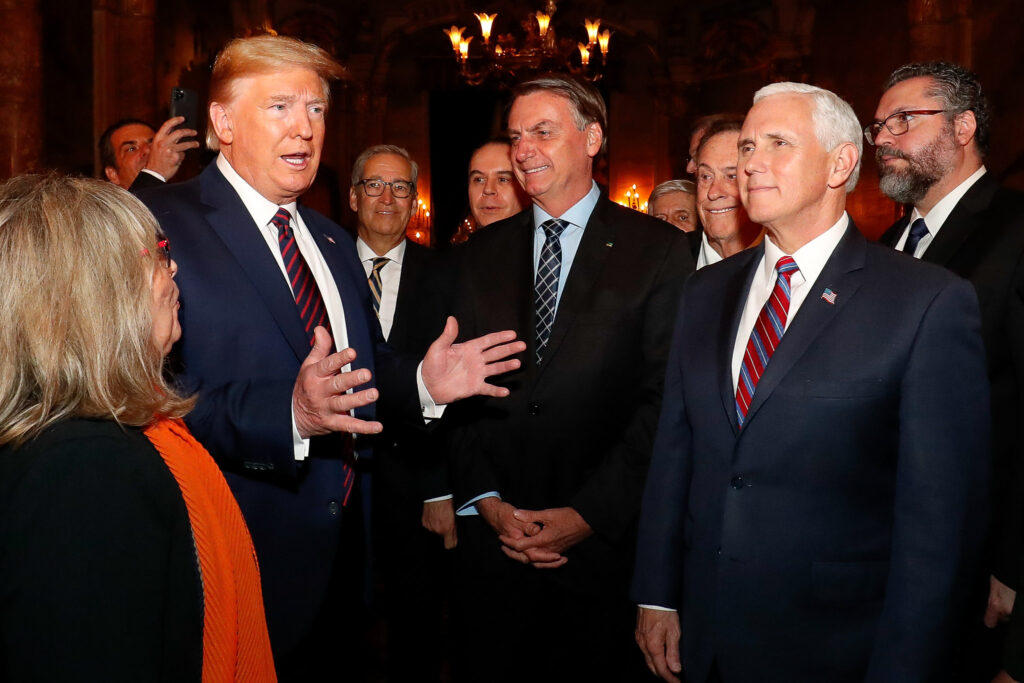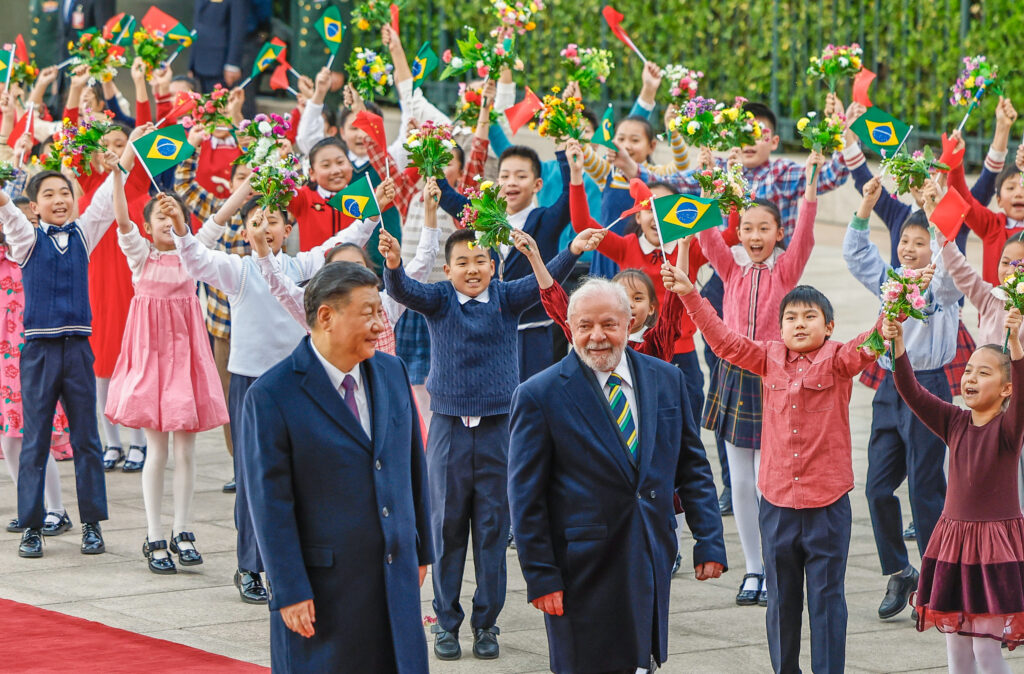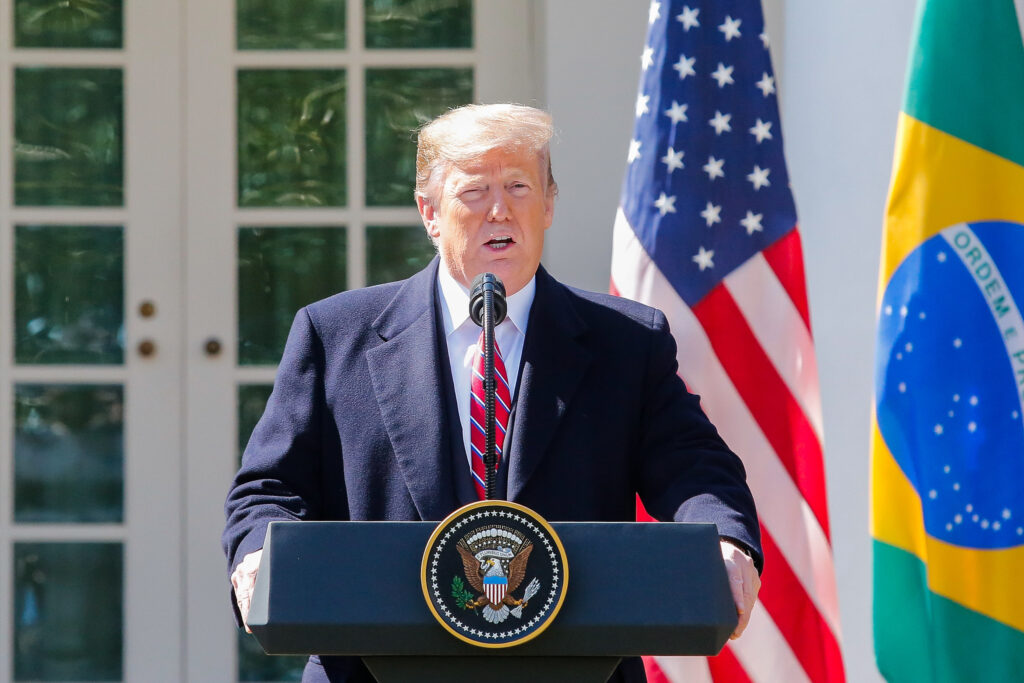São Paulo, Brazil – The return of Donald Trump to the White Home was not the scenario President Luiz Inácio Lula da Silva had probably hoped for. On the eve of the U.S. elections, Lula voiced his preference for the Democratic contender, Vice President Kamala Harris, in an interview with French broadcaster TF1.
“As a lover of democracy, which I imagine is essentially the most sacred instrument humanity has devised to control itself, I naturally root for Kamala Harris to win the elections,” the Brazilian president declared.
But, the result was totally different. Trump emerged victorious and, come January 20, 2025, will as soon as once more lead the world’s strongest nation, 4 years after leaving workplace shrouded in criticism, together with from his response to the COVID-19 pandemic and the January 6, 2021 assaults from his supporters on the U.S. Capitol.
In Brazil, he’ll face a special authorities to these which he skilled in his first time period, which had been extra sympathetic to his right-wing, nationalist model of politics.
In Trump’s first time period, he handled conservative leaders Michel Temer and Jair Bolsonaro.
(photograph: Beto Barata/Presidency of Brazil)
Relations with Temer had been well mannered however restricted in engagement. In September 2017, simply forward of the UN Basic Meeting, Trump hosted a dinner for Latin American leaders in New York, with Temer attending – considered one of their few interactions.
With Bolsonaro, nonetheless, Trump developed a friendship. In March 2019, Bolsonaro made an official visit to the White Home. The next yr, they met once more at Trump’s Mar-a-Lago resort in Florida, the place Trump described Bolsonaro as “an important pal” and remarked, “It’s a nice honor to have the president of Brazil with us. He’s a rare man, doing a wonderful job. Our relationship has by no means been nearer.”
Even out of workplace, their contact endured, with a notable reunion in March 2023 on the Conservative Political Motion Convention (CPAC) in Washington, D.C.
Bolsonaro left workplace, in fact, very like Trump. Defeated in an election and along with his supporters storming the federal government headquarters to protest the election outcome. Each he and Trump have subsequently confronted a number of felony investigations.

(photograph: Alan Santos/Presidency of Brazil)
Removed from his buddy-buddy relationship with Bolsonaro, it’s anticipated that Trump’s relationship with Lula can be strained, due largely to their ideological variations. Regardless of this, Brazil stays a strong buying and selling companion for the US. In 2023, bilateral commerce between the nations totaled $75 billion.
Lula’s preliminary response to Trump’s election indicated openness to dialogue. In a post on X, he congratulated him on his win and his return to the U.S. presidency, emphasizing that democracy displays the folks’s will and wishing the incoming administration success.
Learn extra: How Latin American leaders are reacting to Donald Trump’s victory

In an interview with Brazil Experiences, Leandro Loureiro, a professor of Worldwide Relations on the Federal College of Rio de Janeiro, stated that the connection between Lula and Trump needs to be marked by objectivity, with them prioritizing problems with widespread curiosity to each international locations.
“Lula will probably keep away from direct confrontations and prioritize cooperative agreements on shared points. Conversely, Trump’s strategy towards Lula may additionally be results-oriented, looking for favorable offers. Each leaders are more likely to place financial pursuits above political and ideological variations. Environmental points might emerge as the first supply of pressure,” Loureiro defined.
Dawisson Belém Lopes, a professor of Worldwide Politics on the Federal College of Minas Gerais, emphatically advised Brazil Experiences that Lula and Trump have very totally different personalities, which may be an impediment to constructing bridges.
“They defend a set of views, of visions which can be diametrically opposed, beginning with the studying that one and the opposite have of multilateralism, worldwide establishments, worldwide regulation, the usage of power, the query of Palestine and, I believe, above all, the standing of democracy. At present I don’t see any clear areas of convergence. It should be constructed with talent by the diplomatic corps of the 2 international locations.”

The professor als stated that bilateral relations between Brazil and the U.S. have flourished with Lula and President Joe Biden on the helm. The 2 leaders solid a collaborative agenda encompassing democratic establishment strengthening, environmental preservation, combating misinformation, and employees’ rights – a partnership that, in accordance with Lopes, “strongly linked Lula to Biden.”
Fernando Brancoli, an Worldwide Safety and Geopolitics professor on the Federal College of Rio de Janeiro, advised Brazil Experiences that Lula has expressed the intention to keep up a “civilized relationship” with Trump, underscoring the significance of dialogue and mutual cooperation. Regardless of their ideological divides, a realistic strategy centered on financial and industrial pursuits is predicted, Loureiro prompt.
The consultants additionally highlighted how Trump may reply to China’s rising affect in Latin America. Loureiro defined that China’s elevated presence within the area is a matter near the US’s coronary heart. Based on him, “Trump will most likely attempt to undertake a posture of containment, encouraging bilateral agreements that scale back the dependence of Latin American international locations on China, reinforcing the narrative that these ties with Beijing symbolize dangers to safety and sovereignty.”

Brancoli additionally believes Donald Trump should use bilateral agreements to attempt to include China’s presence within the area.
“Throughout his first time period, Trump adopted a confrontational stance in direction of China, implementing tariffs and commerce restrictions. It’s believable that in his second time period he’ll search to include Chinese language affect within the area, presumably by providing funding options and strengthening commerce ties with Latin American international locations,” he stated.
Belém Lopes identified that Latin America’s growing ties with China stem from the area’s historic marginalization in U.S. overseas coverage. For him, “the U.S. has typically ignored Latin America, with points solely surfacing throughout presidential campaigns in a criminalized lens, specializing in unlawful immigration and drug trafficking.”
In the meantime, China has solidified its place because the area’s top buying and selling companion, signing its first free-trade settlement with Chile in 2006, adopted by related pacts with Peru, Nicaragua, and Ecuador. Uruguay and Panama have additionally initiated talks for his or her agreements.

(photograph: Ricardo Stuckert/Presidency of Brazil)
On November 14, Chinese language President Xi Jinping was in Peru, the place he inaugurated the newest piece of infrastructure constructed by his nation within the area, the Chancay megaport, a US$1.3 billion undertaking.
The terminal, positioned north of Lima, is expected to change into a transshipment hub opening up a brand new connection route between South America and Asia, rushing up commerce throughout the Pacific Ocean.
“This type of mobilization was needed for the US to get up from its deep sleep and begin making an attempt to include the Chinese language. A really clear instance of this was 5G telephony, the best way wherein the US tried in each approach to dissuade Brazil from accepting the presence of Huawei, the Chinese language firm in Brazilian territory, which is a matter that has to do with medium and long-term technique,” stated Lopes.
Loureiro cautioned that Trump’s protectionist stance may additional amplify China’s presence within the area, doubtlessly benefiting agro-exporting international locations whereas providing new market alternatives for Beijing.
“Relating to the promise to increase tariffs to between 10% and 20% on virtually all imports, this might have some penalties for the area’s agro-exporting international locations, however it may open up much more area for the Chinese language market,” Loureiro stated.
As China continues to deepen its ties throughout Latin America throughout Trump’s absence from workplace, it stays to be seen how he’ll counterbalance this affect in his return.
